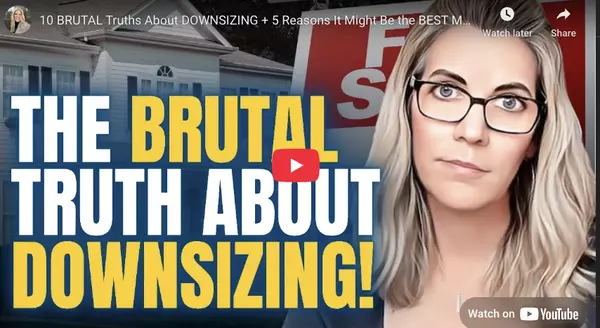This is How You Negotiate a Home Sale
This is how you negotiate a home sale
Hey, it’s me Kati! Selling your home can be an emotionally charged and financially significant process. The negotiation stage, in particular, can be daunting for both first-time sellers and experienced homeowners. In this article, we will explore effective strategies for negotiating a home sale successfully, drawing insights from real estate expert Katie.
Start with the Right Price:
Before delving into negotiations, it’s essential to ensure that your home is competitively priced. If your property has been on the market for an extended period without any offers, it may be a sign that the price is too high. A well-calibrated asking price sets the foundation for a successful negotiation.
Focus on the Finish Line:
The initial offer may not always meet your expectations. However, it’s crucial not to dismiss it immediately. Rather than reacting emotionally, consider engaging in constructive dialogue with the buyer. Many buyers do not lowball offers in today’s competitive market, so working towards a mutually agreeable solution is often more productive.
Proof of Funding:
Upon receiving an offer, ensure that the buyer provides proof of funding or a mortgage approval. This helps verify their financial capacity to complete the transaction. Your real estate agent can assist in validating the authenticity of these documents.
Give a Little in Your Counteroffer:
Katie advises sellers to counter with a reasonable, slightly lower counteroffer than their ideal price. This approach can signal to the buyer that you are open to negotiation, fostering a more cooperative atmosphere.
Be Strategic with Multiple Offers:
Dealing with multiple offers can be a challenging task. To maximize your chances of a successful sale, avoid disclosing the number of interested parties to each other. This can prevent potential buyers from being discouraged by a competitive situation and backing out.
Leverage Backup Offers:
Consider accepting a backup offer, which can be a valuable bargaining tool. If the primary offer falls through, having a backup offer in place can provide the seller with a sense of security and potentially motivate the initial buyer to stay committed.
Define Your Bottom Line:
It’s crucial to establish your bottom line, the absolute minimum amount you are willing to accept for your property. Share this with your real estate agent to provide them with a clear negotiating stance. Knowing your limits empowers your agent to negotiate effectively on your behalf.
Evaluate the Cost of Stress:
Selling a home can be a stressful process, and stress can have a financial cost. Consider how much stress is worth to you in monetary terms. In some cases, accepting a slightly lower offer may be worthwhile if it allows you to move on with your life more quickly and with less anxiety.
Last Bottom Line Number:
If you find yourselves at an impasse during negotiations, don’t walk away without giving your final, non-negotiable number. This step ensures that both parties have explored all possibilities before concluding the negotiation.
Watch for Red Flags:
During the negotiation process, be attentive to potential red flags, such as excessive buyer inquiries or hesitations. These can be indicators of a buyer’s uncertainty, which may lead to them backing out later in the process.
Keep Emotions in Check:
Selling your home can be an emotional experience, but it’s essential to separate your feelings from the negotiation. This is a business transaction, and approaching it with a level head will lead to more successful outcomes.
Conclusion:
Negotiating a home sale can be a complex and emotionally charged process, but following these expert tips can help you navigate it successfully. From setting the right price to strategically managing multiple offers and keeping emotions at bay, mastering the art of negotiation is a critical skill for anyone looking to sell their home.
Recent Posts











